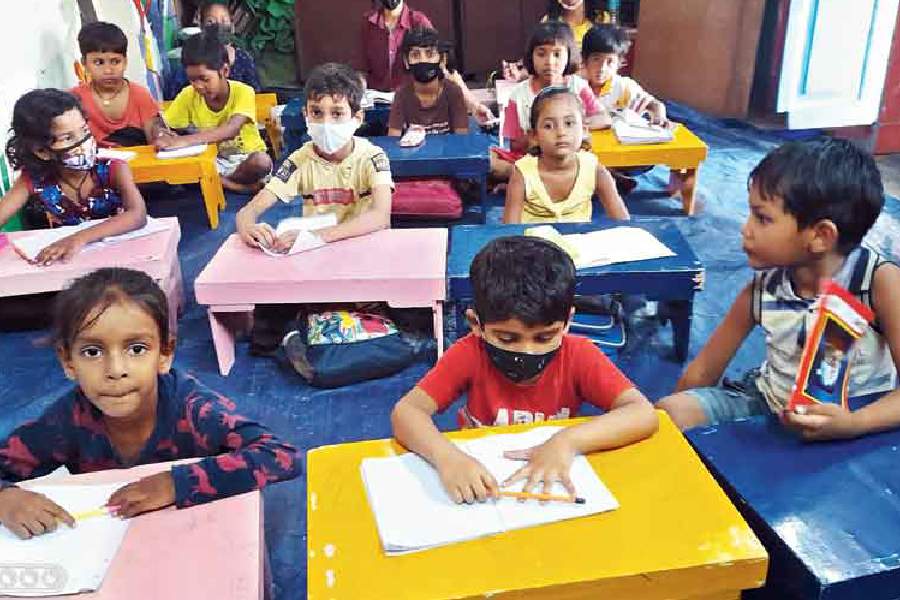Kids return to NGO schools post-pandemic


Several NGOs that work with children whose families struggle to make ends meet are seeing a change in the attitude of parents, who are becoming “aspirational” and keen on getting their children admitted to school, a welcome break from the pandemic mindset.
Almost all NGO-run schools saw massive dropouts during the Covid pandemic, despite that fact they charged only a nominal fee or nothing at all.
The reason being the financial strain and lack of jobs during the pandemic, which forced many underprivileged families to shift back to their villages.
Gradually, they are returning to the city, the NGOs said.
“Last year, we had 800 applications for 80 seats. The exposure and awareness among the parents are rising and they have become more aspirational than before,” said Vinita Saraf, founder and trustee, Ek Tara, an NGO that works for children from marginalised families.
Saraf said that, on their part, they have upped their quality and increased the children’s exposure.
Most of the NGO-run schools focus as much on academics as on extra-curricular activities for the sake of all-round development of the children.
To cater to the increased demand, Future Hope is building a school in Rajarhat.
“There are more number of students wanting to come to us and we are building a new school to be able to cater to more children who find it difficult. That there is a demand of education is a positive step,” said Sujata Sen, chief executive officer, Future Hope.
Sen said that last year they had received 600 applications for 45 seats for kindergarten (children above five years).
“During the pandemic, a lot of people who earned in the city had no job and had to go back to their villages taking their children with them,” said Sen.
They have also realised the value of education, said those working in the field.
“They have realised that their children need to have at least a higher secondary degree to be able to get any work,” said Tanmoy Patra, founder, Howrah Vivekananda Siksha Kendra in Bagnan. “We have had people requesting us to take down their names so that they are prioritised when we start enrolling children.”
“The urgency to get their children educated is more among women. Once we take in children, we try to generate a livelihood for the mothers by giving them vocational training,” said Arjun Dutta, president, Calcutta Social Project.